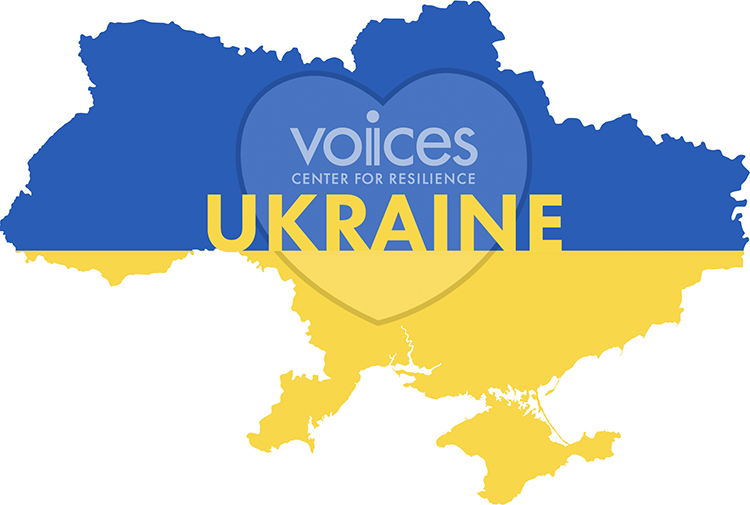VOICES Stands With Ukraine
 Along with the global community, VOICES shares a deep concern about the tragic events occurring in Ukraine. Guided by our purpose, and as an organization dedicated to supporting communities impacted by tragedy, we condemn the fighting and suffering which violently contradicts our belief that all people should be treated with dignity and respect.
Along with the global community, VOICES shares a deep concern about the tragic events occurring in Ukraine. Guided by our purpose, and as an organization dedicated to supporting communities impacted by tragedy, we condemn the fighting and suffering which violently contradicts our belief that all people should be treated with dignity and respect.
Access to vetted information for all people affected by the war is critical. VOICES has provided links to many humanitarian and financial resources for those fleeing Ukraine and for those wanting to support the Ukrainian relief effort.
It is common to experience a range of emotions after experiencing a traumatic event, including fear, anger, anxiety, difficulty paying attention, depression, and disrupted sleep. It is important to monitor both your physical and emotional health.
What follows are common emotional and physical reactions where stress usually manifests, including coping tips and techniques.
- Anxious or fearful
- Overwhelmed by sadness
- Angry
- Guilty
- Heroic, like you can do anything
- Energized or no energy at all
- Disconnected, not caring about anything or anyone
- Numb, unable to feel either joy or sadness
Common Physical Reactions
- Being jumpy or easily startled
- Trouble falling asleep, staying asleep, sleeping too much, or trouble relaxing
- Racing heartbeat
- Changes in sex drive
- Sensitivity to noises or smells
Taking Care of Your Mind and Body
- Spend some time outdoors and enjoy nature
- Avoid over-using alcohol or drugs and participating in risky behaviors
- Avoid stimulants like caffeine, sugar, or nicotine
Coping Tips and Techniques
Remember that there is no one “right way” to deal with everything you are feeling. What’s important is to find a way that works for you, and be patient with yourself.
Limit news consumption. Constant replay of a traumatic event can increase stress and anxiety and cause you to relive the event. Reduce exposure to the news and social media.
Express your emotions. Holding in your feelings can be unhealthy and can prolong the recovery process. Cry when you need to and know that it’s okay to have moments of joy after a trauma. It does not mean that you are “forgetting” those who suffered or died.
Use spirituality, meditation, or relaxation techniques. Prayer, meditation, yoga, mindfulness, guided imagery, and other relaxing activities can all be effective means of relieving stress.
Resume your daily routines. Reestablishing your normal routines can help you.
Asking for Help
Rely on a social support system. Reach out to family and friends with whom you feel close, or connect with others who have shared a similar situation.
Talk or write about your experience. Express what you are feeling in whatever ways feel comfortable to you. Some examples are keeping a diary, engaging in a creative activity, or talking with people who are empathetic.
Don’t hesitate to contact professional help. Trained professionals will be able to provide the support needed to promote healing and recovery in your life.
Important Resources to Support Ukraine
VOICES has aggregated an official list of national and international resources – websites and helplines to support the People of Ukraine. Additional information and resources regarding the Ukrainian diaspora, trauma, and the psychological impact of the war, are also provided. Click here to learn more.
